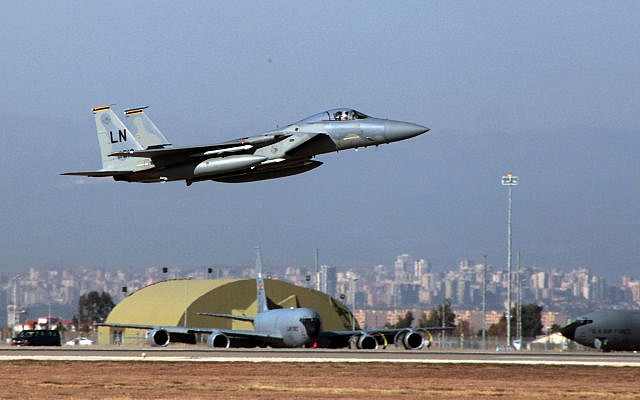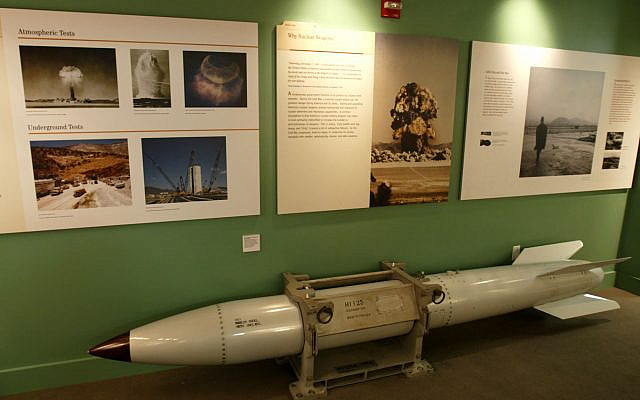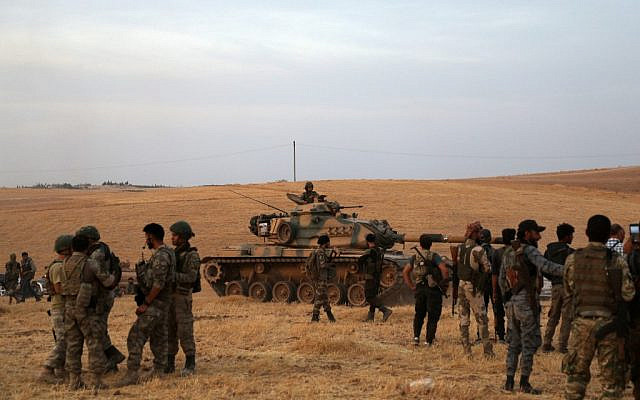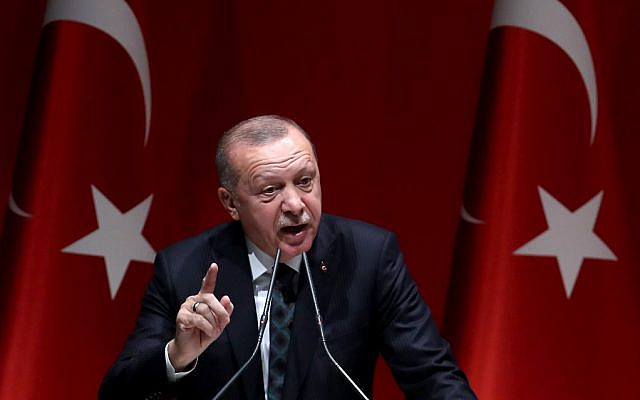American military believed to house some 50 tactical nuclear bombs at Incirlik in southern Turkey, just 70 miles from the border with war-torn Syria

US officials met in recent days to review plans to remove some 50 nuclear weapons housed under American control at the Incirlik Air Base in Turkey amid growing tensions with Ankara, the New York Times reported Monday.
US President Donald Trump said Monday he would issue new sanctions against Turkey, halting trade negotiations and raising steel tariffs, in an effort to pressure Ankara to stop its ongoing offensive attack in Syria against Kurdish forces.
While the Pentagon does not discuss where it stores nuclear assets, the B61 gravity bombs are believed to be kept at Incirlik as a deterrent to Russia and to demonstrate America’s commitment to NATO, the 28-member military alliance that includes Turkey.
Two officials told the paper that State and Energy Department officials were quietly examining ways to remove the tactical nukes, with one official saying they were effectively hostage to Turkish President Tayyip Erdogan.

“To fly them out of Incirlik would be to mark the de facto end of the Turkish-American alliance. To keep them there, though, is to perpetuate a nuclear vulnerability that should have been eliminated years ago,” the paper said.
The US Air Force declined to answer questions about possible nuclear weapons at the base or whether they would be moved.
In an email to Air Force Times, spokesperson Ann Stefanek said there have been no daily operations changes at the base.
It’s not the first time the security of the nuclear weapons stationed on the base in southern Turkey, just 110 kilometers (70 miles) from the border with war-torn Syria, has been raised.
Following the 2016 attempted coup in Syria a leading think tank warned the weapons could fall into the hands of “terrorists or other hostile forces.”
Since 2014, the Kurds had fought alongside American forces in defeating IS in Syria. But Trump ordered American troops in northern Syria to step aside last week — a move decried at home and abroad as a betrayal of an ally.

Turkey has justified its ongoing invasion of northeast Syria to the United Nations by saying it’s exercising its right to self-defense under the UN Charter, according to a letter circulated Monday.
Ankara said the military offensive was undertaken to counter an “imminent terrorist threat” and to ensure the security of its borders from Syrian Kurdish militias, whom it calls “terrorists,” and the Islamic State group.
Nuclear ambitions
Erdogan has recently expressed his frustration at not having nuclear weapons, saying last month that Turkey should be allowed to have nukes if Israel does.
“Some countries have missiles with nuclear warheads, not one or two. But (they tell us) we can’t have them. This, I cannot accept,” the Reuters news agency quoted him as telling his ruling AK Party members in the eastern city of Sivas.
“There is no developed nation in the world that doesn’t have them,” Erdogan said, even though most developed nations do not have nuclear weapons.

Under international treaties only the US, Russia, the UK, France and China could have nuclear weapons. India, Pakistan and North Korea later developed them too. South Africa had several atomic bombs but dismantled them when it became a democracy.
Israel is also believed to have nuclear weapons, a fact alluded to by Erdogan.
“We have Israel nearby, as almost neighbors. They scare (other nations) by possessing these. No one can touch them.”
Erdogan stopped short of saying that Turkey would begin developing weapons, but seemed to rail against the terms of the Nuclear Nonproliferation Treaty, which Turkey signed in 1980. Turkey has also signed the 1996 Comprehensive Nuclear-Test-Ban Treaty, which bans all nuclear detonations for any purpose.
As reported by The Times of Israel
